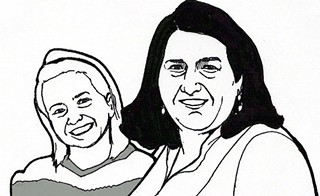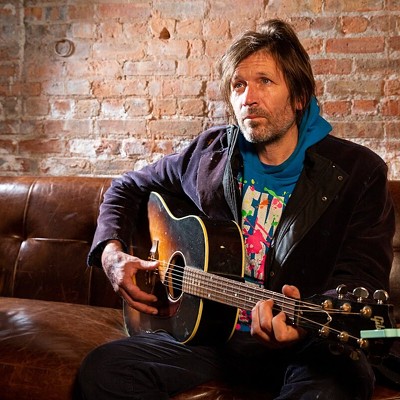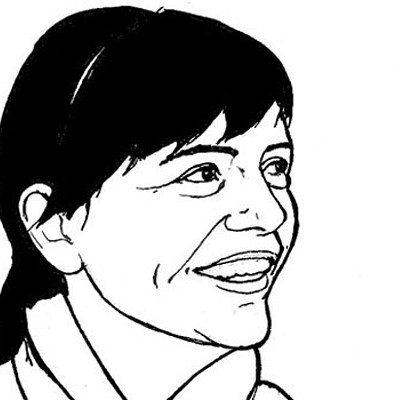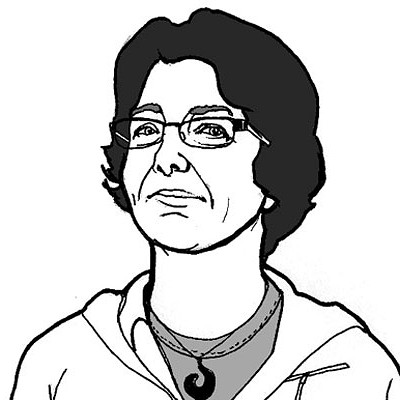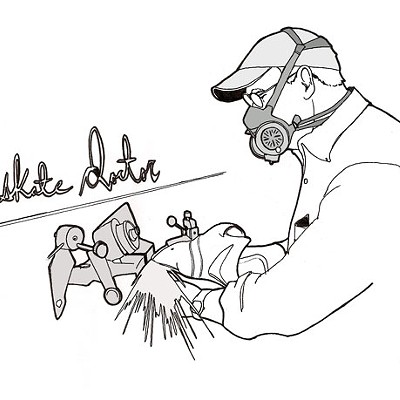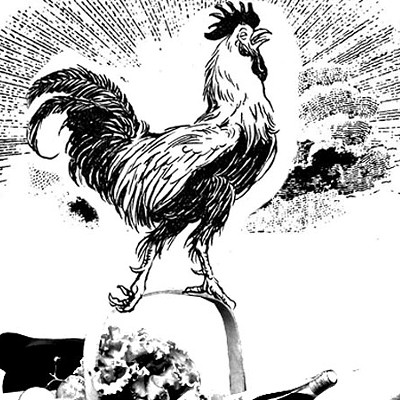Rachael Smith-Bakhache won't be dragging around her kids for H1N1 shots this week. And not anytime after that, either.
"It's my choice," says the 38-year-old mother of two. "And I don't think I have to stand up and tell you why it's my choice."
But she will, if you ask.
And explaining why her family won't be vaccinated against H1N1 influenza is easy for Smith-Bakhache, because her reasons aren't the most obvious and easily refuted---too busy to stand in line, too pissed off about the seeming lack of organization, too lame to Google clinic locations and times.
Smith-Bakhache says, simply: "There are other ways."
Neither of Smith-Bakhache's kids---an 11-year-old girl and a boy just past one---has ever been vaccinated. Not for mumps, rubella, polio. None of it.
"We are a holistic family. We have been right from the get-go."
Smith-Bakhache replaces immunizations with a host of other tactics; the same ones she'll keep up, or even ramp up, instead of lining up for an H1N1 poke. She does homeopathy, uses natural remedies and practices homegrown immunity-boosting---she lists breastfeeding her one-year-old, giving her daughter limited amounts of sugar and dairy products, plus supplements like garlic pills and feeding everyone fresh vegetables and natural meats.
"Some parents think that's not going to matter," says Smith-Bakhache. "But it's little steps. [It's like] saving the environment---turn your lights off. It adds up."
Smith-Bakhache can't understand why parents will pony up their kids for a vaccination when they don't bother with everyday measures to keep them healthy---she cites sending them to school without proper clothing, "with a lunch that is full of sugar. Even dairy products, that is something I do not do. Sending your children to school with a healthy lunch is very important. They need fresh vegetables. They need lots of fresh water."
But there's a bigger piece of pandemic preparedness that goes along with all of Smith-Bakhache's baby steps and everyday actions.
"I am always keyed into my children," she says. "I have watched [my daughter's] behaviour, her diet, just keying into, and being focused on, my children and not being too busy within my own life."
That's what people should be spending time thinking about, Smith-Bakhache says. "I mean, why are people putting so much thought into [the vaccine]?"
If you ask other parents to answer that question, they will likely cite the H1N1 deaths of 10-year-old Vanetia Warner and 13-year-old Evan Frustaglio, two otherwise healthy Ontarians who died after contracting the virus. Frustaglio, a minor league hockey player in grade eight, was sick for only 48 hours. A friend told me yesterday it's outright terror from hearing of those deaths that is driving the rolled sleeves of her and her kids to the closest clinic. Before she heard about Warner and Frustaglio, she didn't really see the point of getting the shots.
And those mind-rending deaths aren't the only thing to think about: a Journal of the American Medical Association study last month found two-thirds of Canadians who fall gravely ill or die from H1N1 are young, healthy women---exactly the profile of Smith-Bakhache.
But Smith-Bakhache has run through the what-ifs.
What if she is a vector---someone who doesn't get sick but passes the virus along?
She says the best way to avoid that is to steer clear of the virus in the first place, which she's already doing.
What if one of her kids gets sick?
"I will feel horrible," she says. "Definitely. And like maybe it wasn't the right choice for me to make."
But she still thinks it is the right one, in the context of the way she raises her family. And, after all, according to the Centres for Disease Control, the regular flu kills 36,000 people a year in the US alone.
Smith-Bakhache's husband works in the armed forces, and was vaccinated at work this week. Still, he told his non-vaccinating wife, "I trust your judgment." Smith-Bakhache's mom reserved opinion, telling her daughter (who, yes, was immunized by her parents as a child), "You do what you want to do." Smith-Bakhache admits: "A girlfriend of mine, she is going to be outraged."
But Smith-Bakhache can let it roll off her back. That's kind of her style, really: taking matters into her own hands, despite what the rest of the world is telling her. That, and reiterating that vaccination is her choice.
"My children are healthy," she says, "because of other choices I have made."

